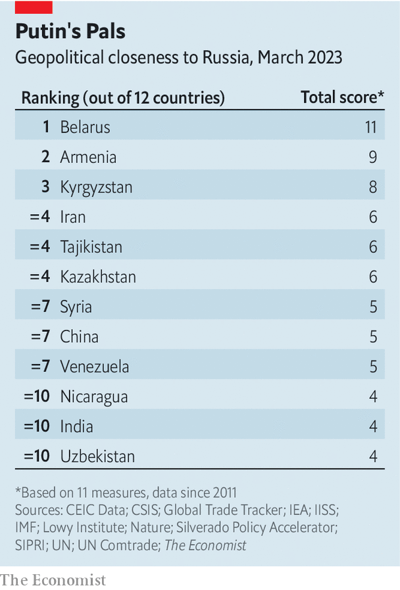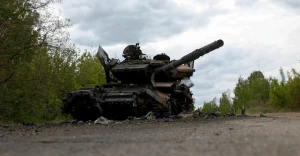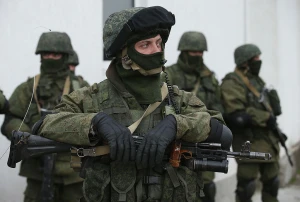
Putin’s pals index: The Economist collates data on crew of Russia’s friends
The British weekly newspaper groups them into three categories: a coalition of the failing; the Soviet Remembrance Society; and a gang of opportunists
“The West’s plans to isolate Russia by surrounding us with a sanitary cordon have been a fiasco. We are strengthening good neighborly relations…with the international majority,” Russian Foreign Minister Sergei Lavrov said. Lavrov appears to have a valid point at first glance. On the day before the first anniversary of Russia's invasion of Ukraine, on February 23rd, 39 countries refused to support a UN resolution condemning it. Despite sanctions imposed by the United States and its allies, Russia's economy and trade have performed well, The Economist writes.
Russia's geopolitical clout appears to be impressive on paper. It has troops and mercenaries stationed in at least 16 countries. Some, as in Mali and Syria, support friendly autocrats. Others maintain "frozen conflicts" in order to keep countries like Georgia in line and out of NATO. Over the last decade, Russia has accounted for more than half of all arms imports into 22 countries, including major ones like China and India. It has received the support, or at least useful abstentions, of dozens of countries at the United Nations.
Its power is amplified by natural resources and technology. Russia was the dominant natural-gas supplier to more than a dozen countries in the decade preceding the invasion, giving it an energy weapon that it has not hesitated to use against Europe: in 2005, 2009, and again last year. Ten countries either generate a significant portion of their electricity from Russian-built nuclear reactors or work closely with Russia on nuclear technologies.
However, data compiled by The Economist on a wide range of military, economic, and diplomatic measures – dubbed the "Putin's pals index" – provide a murkier picture.
In three broad areas, the index examines 11 different measures of support or potential for coercion. The first set is a military one. Are they Russia's treaty allies? Is there a presence of Russian troops or mercenaries on their territory? Have they supplied Russia with arms since the war began? Do they rely on Russian weapons? Have they conducted any maneuvers with Russia since the beginning of the war? The second approach is diplomatic. Have countries voted against Russia, abstained, or voted with it at least twice on key UN resolutions?
The third set is concerned with energy and economics. Do they rely on Russian gas, as well as Russian nuclear power plants or technology? Is trade with Russia a significant portion of their total trade? Have Russian exports increased since the war?

A "coalition of the failing," a "Soviet remembrance society," and a "axis of opportunists" are three ways to think about the universe of countries with ties to Russia.
The B Team
Begin with the failing coalition. In the Collective Security Treaty Organization (CSTO), Russia has five formal allies: Armenia, Belarus, Kazakhstan, Kyrgyzstan, and Tajikistan. By treaty, everyone is obligated to come to each other's aid if they are attacked. Despite this, no CSTO member has sent troops to support Russia's war in Ukraine, though Belarus has allowed itself to be used as a military base.
Rather, some CSTO members are attempting to distance themselves from the conflict. Armenia is enraged that the 3,500 Russian troops stationed on its soil did not come to its aid during a conflict with Azerbaijan in 2020.
Kazakhstan has long been a close Russian ally. Mr Putin dispatched troops to the country last year to quell anti-government protests. Nonetheless, Kazakhstan's President Kassym-Jomart Tokayev criticized the Ukraine war in front of Mr Putin during a visit to St Petersburg in June.
Apart from Belarus, only Iran and North Korea have sent weapons to Russia.
Countries in the failing coalition have a lot in common. None of them is a true democracy. Some, like Syria, rely solely on Russian troops or mercenaries to ensure the survival of their governments. Others, such as Eritrea, are global outcasts.
Farewell, Lenin
The Soviet remembrance society is a subset of these. While they do not provide serious diplomatic or military assistance, they tend to lean toward Russia, holding military drills with its armed forces and echoing its arguments that NATO expansion or Ukraine itself is to blame for the war.
However, Soviet nostalgia is not the only factor at work, particularly in Africa, where the majority of countries abstain on key UN votes are found. Russian diplomacy in Africa is focused on security assistance and the sale of weapons. Russia is more than just a major supplier of weapons. It has also become the last-resort arms dealer, gaining clout in countries cut off from Western supplies due to coups and human-rights violations.
Nuclear energy provides Vladimir Putin with yet another potential lever. At least nine countries, including Bangladesh and Egypt, may be vulnerable to political pressure because they rely on nuclear plants built or operated by Russia. A number of other countries have extensive nuclear cooperation with Russia.
Opportunists' axis
The third group of countries, known as the axis of opportunists, sees Western sanctions as an opportunity to increase their own trade with Russia on favorable terms. According to Silverado Policy Accelerator, Russian imports of goods fell by more than 40% in the first few months following its invasion. However, by September, they had mostly recovered as China and Turkey, in particular, stepped in to replace European and American exports.
So far, the West has been unable to completely halt Russian imports of high-tech widgets like computer chips, which are used in missiles and other weapons. Russia has continued to import between one-third and one-half as many chips as it did before the war, owing largely to a significant increase from China.
Chinese officials maintain their neutrality in Ukraine, refusing to condemn Russia's invasion but blaming the conflict on NATO's expansion since the cold war's end. One major question is whether China will begin supplying Russia with weapons for use in Ukraine. This could alleviate Russian ammunition shortages and possibly change the course of the war.
India could benefit far more from trade with Russia than it currently does. It has studiously avoided condemning Russia's invasion while increasing its imports of discounted Russian oil (though now says it will stick to a price cap imposed by the West). It continues to be a major purchaser of Russian weapons. At the same time, it does not appear to have become a critical conduit for bringing sanctioned goods into Russia.
- News














































